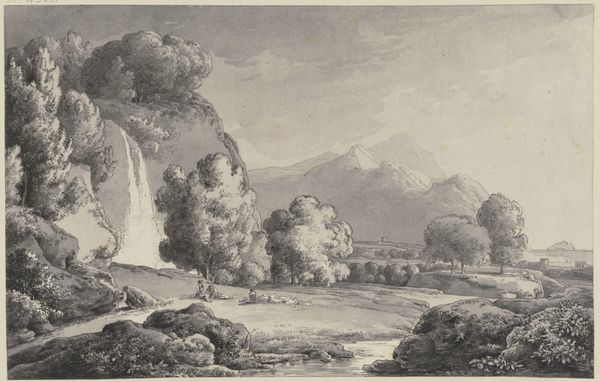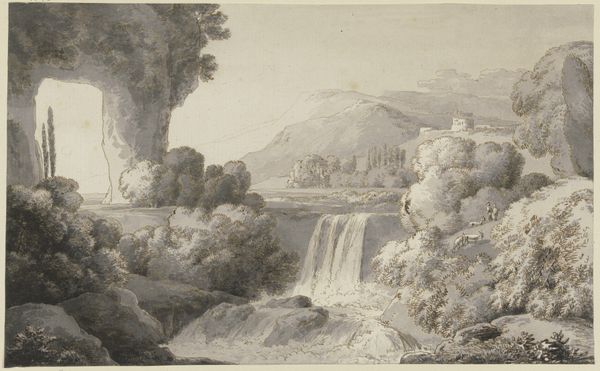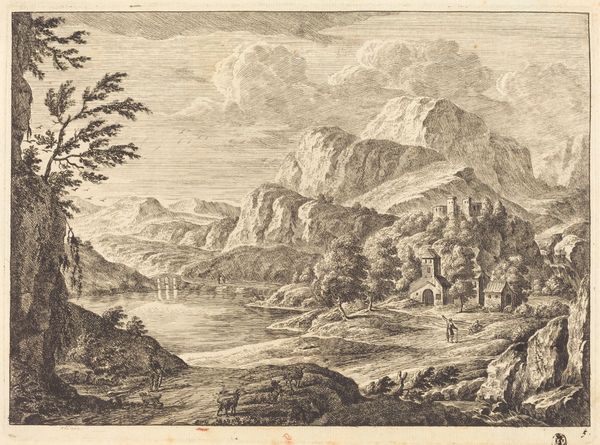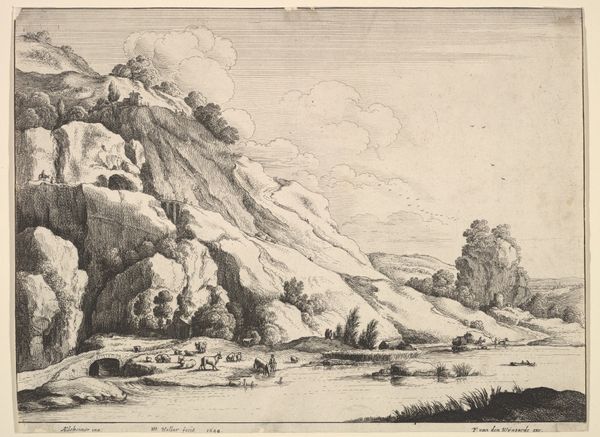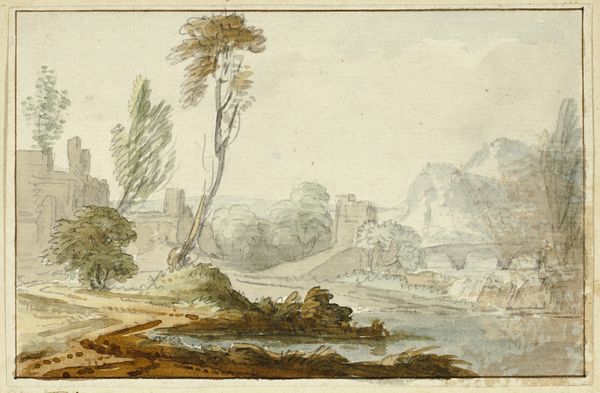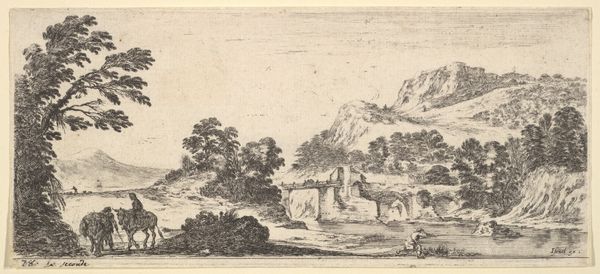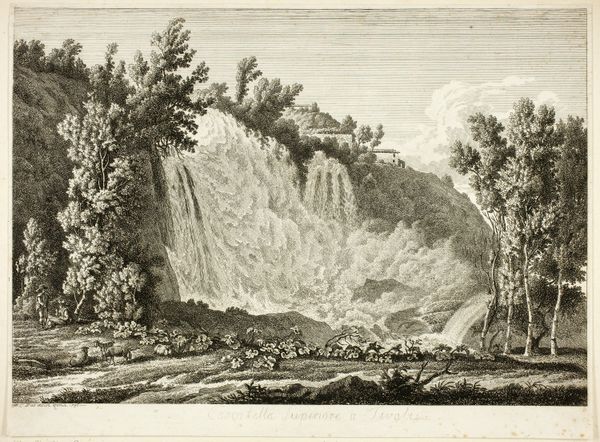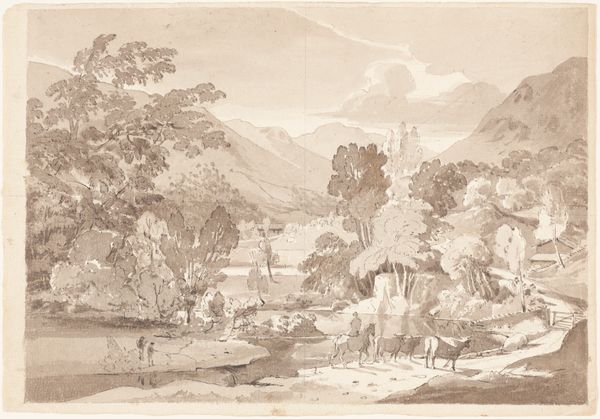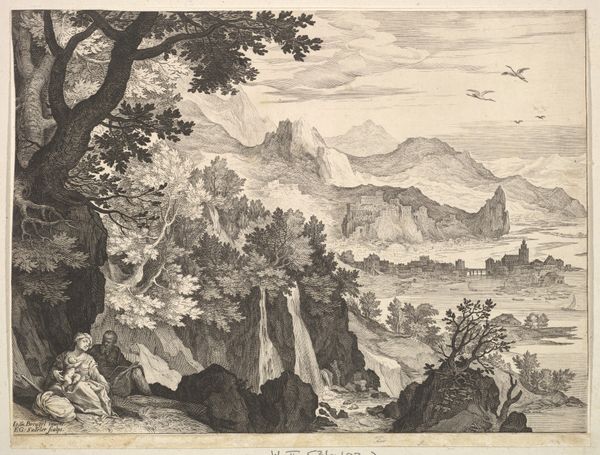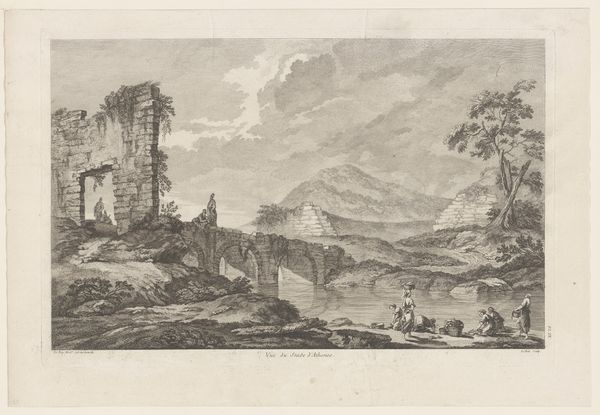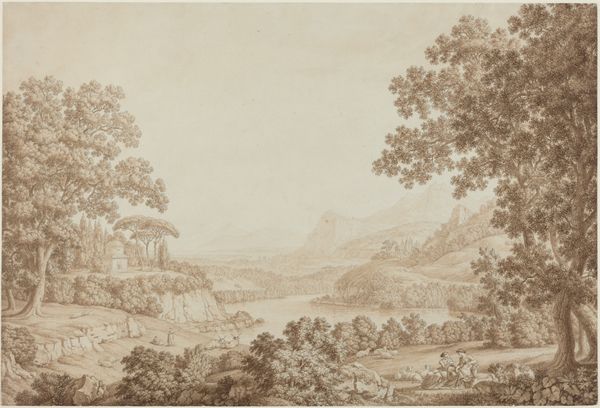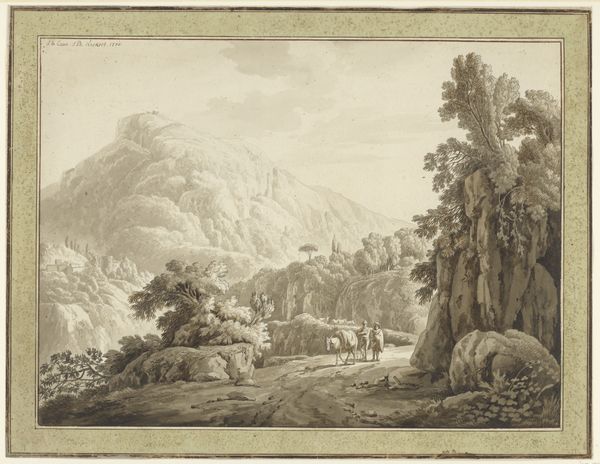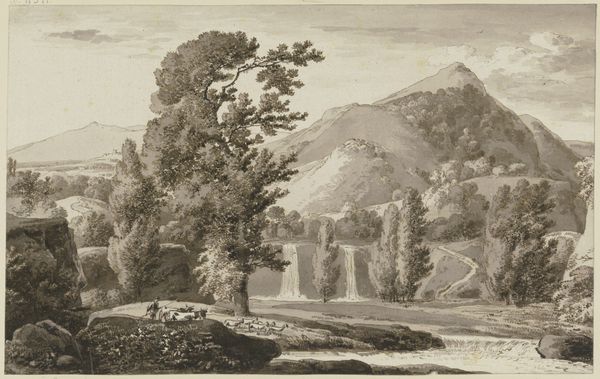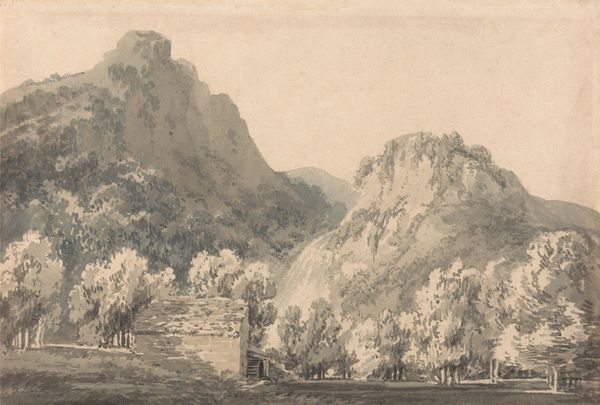
drawing, print, paper, watercolor, pencil, graphite
#
drawing
# print
#
pencil sketch
#
landscape
#
etching
#
paper
#
watercolor
#
coloured pencil
#
romanticism
#
pencil
#
france
#
water
#
graphite
Dimensions: 87 × 131 mm
Copyright: Public Domain
Editor: This is Jean-Baptiste-Claude Chatelain's "Figure of River below Cliff," a drawing made with pencil, graphite, and watercolor on paper. The colors are muted, and the scene is quite serene, but there is something haunting in this person alone within nature. How do you interpret this work? Curator: The landscape is, ostensibly, a purely natural setting. Yet, we cannot ignore that Romanticism was as much about an idealized nature as it was about escaping the increasingly industrialized world. This work needs to be examined through a socio-political lens. Who has access to such spaces of supposed escape? And what does it mean that the lone figure appears diminutive, even powerless, against the scale of nature? Editor: That's interesting, I hadn't considered the access question. It's easy to get lost in the pretty picture, but it’s crucial to ask who the landscapes are made for and how are the power structures involved? Curator: Exactly. Think about the historical context of landscape art – often commissioned by the land-owning class. Consider how such images naturalize specific social hierarchies, even making them appear as immutable features of the human experience. How can we critically re-evaluate the relationship between nature, representation, and social justice? Editor: So you're suggesting that the drawing, despite its peaceful aesthetic, subtly reinforces class and social structures of the time? Curator: It invites a critical engagement. It is a reminder to interrogate our own positions as viewers and to consider whose stories are prioritized and whose are obscured. This piece provides insight into the power relations embedded in seemingly innocent landscapes. Editor: I see that this artwork provides new angles and socio-historical implications to consider about access and social hierarchies. Thank you. Curator: Absolutely. Let's keep these questions in mind as we continue through the gallery.
Comments
No comments
Be the first to comment and join the conversation on the ultimate creative platform.
